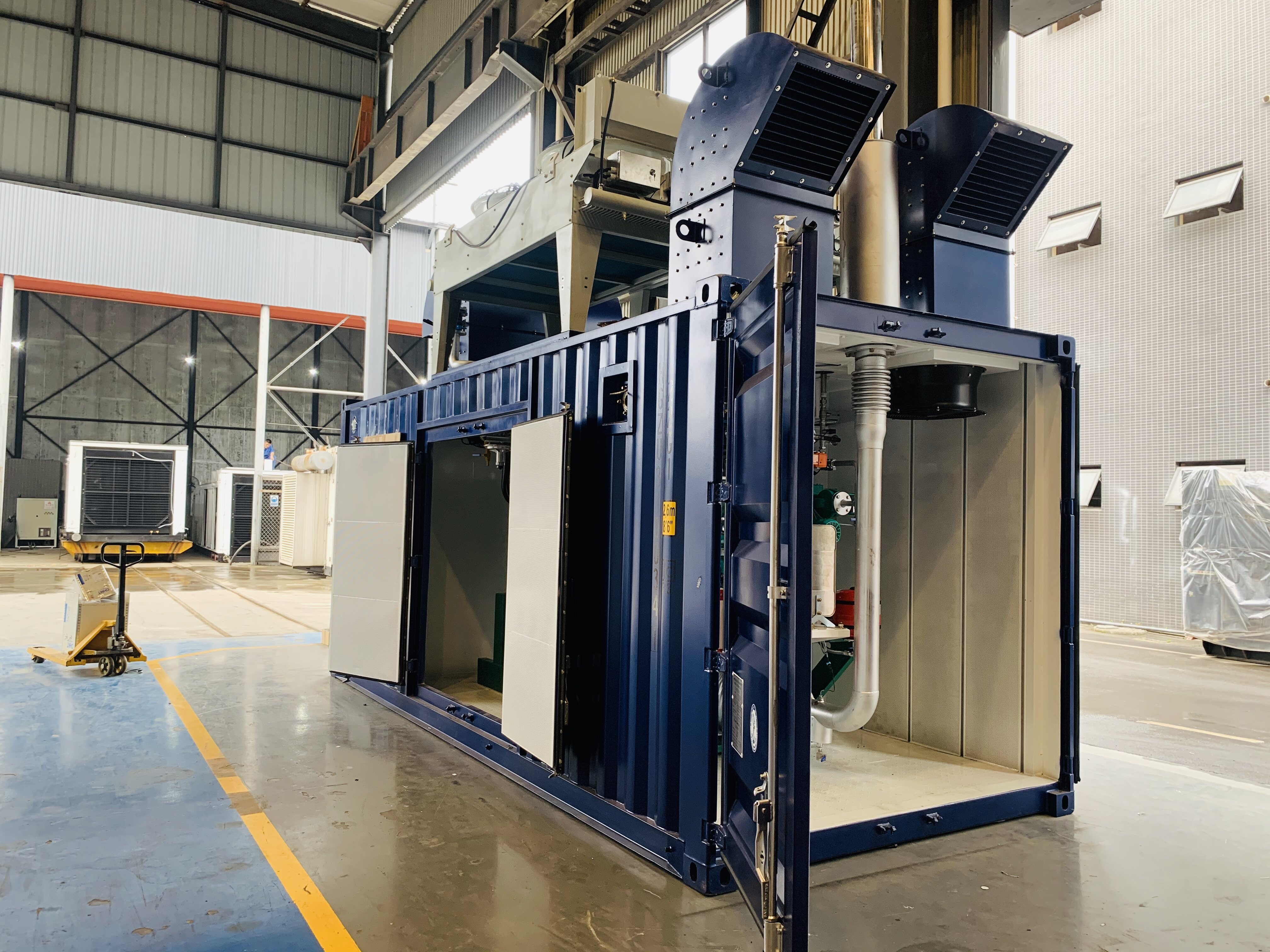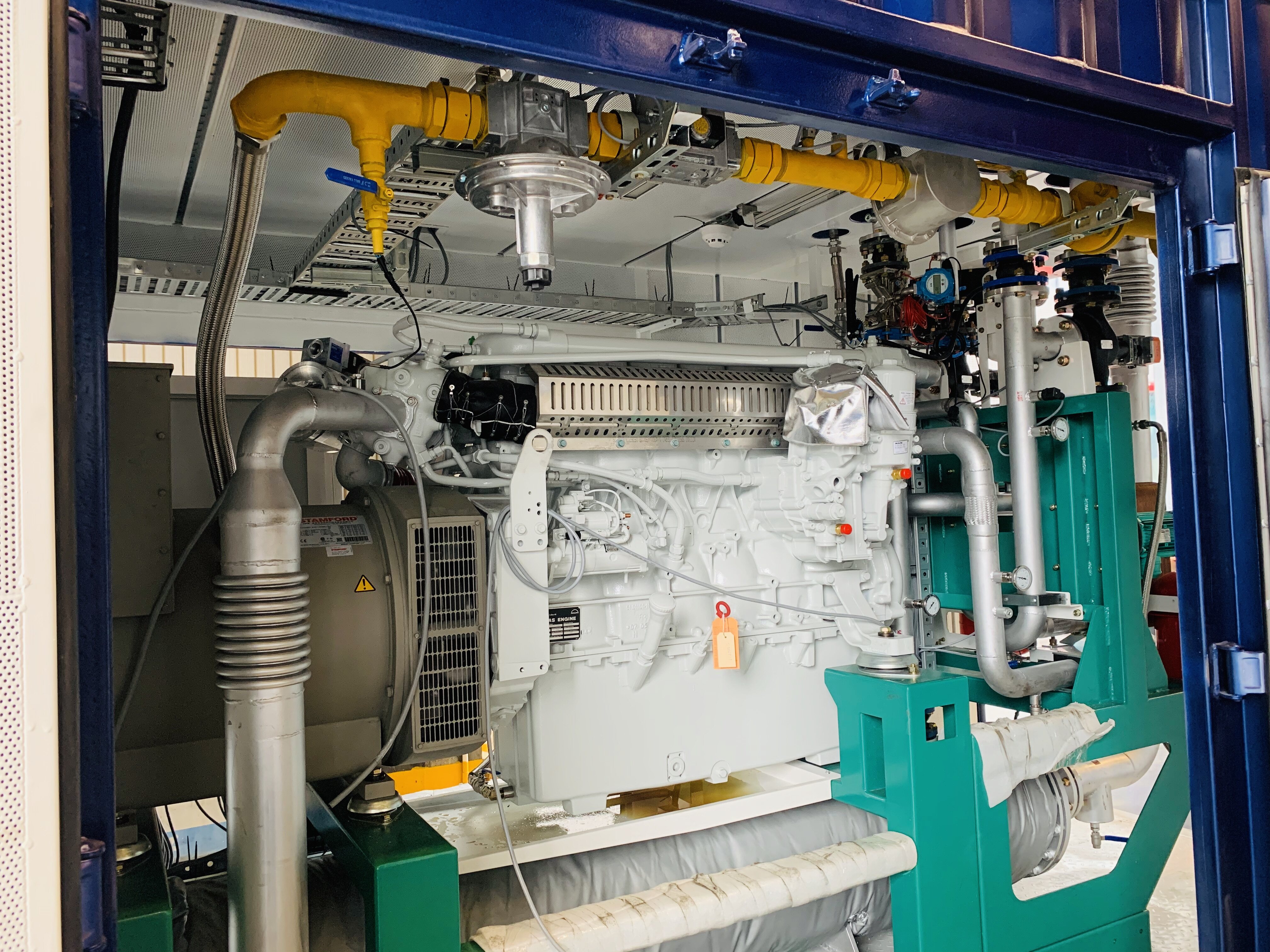Understanding the Benefits and Applications of a Natural Gas Generator Set
In today's energy-conscious world, the demand for efficient, reliable, and environmentally friendly power solutions is more significant than ever. A natural gas generator set is emerging as a popular choice among businesses and homeowners alike. This article will delve into the benefits, applications, and considerations of using a natural gas generator set, helping you understand why it might be the right choice for your power needs.
What is a Natural Gas Generator Set?
A natural gas generator set, often simply called a gas genset, is a device that converts natural gas into electrical energy. Unlike diesel or gasoline generators, which use liquid fuel, a natural gas generator operates using natural gas, a cleaner and more sustainable fuel option. These generators are commonly used for backup power in homes, businesses, and industrial settings, but they also have applications in continuous and prime power scenarios.
The Advantages of Using a Natural Gas Generator Set
1. Environmentally Friendly
One of the most significant advantages is its environmental impact. Natural gas burns cleaner than other fossil fuels, producing fewer emissions of harmful pollutants such as sulfur dioxide (SO2), nitrogen oxides (NOx), and particulate matter. This makes natural gas generators an eco-friendly alternative to diesel generators.
2. Cost-Effective Operation
Natural gas is often less expensive than other fossil fuels, making the operation more cost-effective over time. Additionally, the fuel's price stability helps avoid the sharp cost fluctuations that are common with diesel and gasoline.
3. Reliable and Continuous Supply
Natural gas is delivered directly to the generator via pipelines, ensuring a continuous and reliable fuel supply. This eliminates the need for fuel storage and refueling logistics, which are necessary with diesel generators. As a result, the generator set can provide uninterrupted power during extended outages.
4. Lower Maintenance Costs
Compared to diesel generators, the generator set typically requires less maintenance. The cleaner-burning nature of natural gas reduces the buildup of carbon deposits, leading to less wear and tear on the engine. This can result in lower maintenance costs and a longer lifespan for the generator.
5. Quiet Operation
Noise pollution is a concern, especially in residential areas. Natural gas generators tend to operate more quietly than their diesel counterparts, making them a more suitable option for use in noise-sensitive environments.
Applications of Natural Gas Generator Sets
1. Residential Backup Power
For homeowners, the generator set offers a reliable backup power solution during outages. Whether due to storms, grid failures, or other disruptions, these generators can keep essential appliances and systems running, ensuring comfort and safety.
2. Commercial and Industrial Use
In commercial and industrial settings, the generator set can provide backup power to critical systems, minimizing downtime and preventing losses. These generators are also used as primary power sources in locations where grid electricity is unavailable or unreliable.
3. Telecommunications
The telecommunications industry relies on continuous power to maintain network operations. The generator set can provide a dependable power source for cell towers, data centers, and other critical infrastructure.
4. Healthcare Facilities
Hospitals and other healthcare facilities require uninterrupted power to operate life-saving equipment. The generator set offers a reliable backup power solution that can automatically engage during outages, ensuring the safety of patients.
5. Agricultural Operations
Farms and other agricultural operations often require backup power for essential equipment such as irrigation systems, refrigeration units, and ventilation systems. A natural gas generator set can provide the necessary power to keep operations running smoothly.
Factors to Consider When Choosing a Natural Gas Generator Set
1. Power Requirements
The first step is determining your power needs. This includes calculating the total wattage required by all the devices and systems you plan to power. Consider both peak and continuous loads to ensure the generator can handle your needs.
2. Location and Installation
The location of the generator is crucial. It should be installed in a well-ventilated area, away from windows and doors to prevent exhaust gases from entering the building. Additionally, the generator should be easily accessible for maintenance.
3. Noise Levels
If the generator is installed in a residential or noise-sensitive area, consider models with noise-reduction features. Some natural gas generators come with soundproof enclosures that can significantly reduce operational noise.
4. Fuel Supply
Ensure that your location has access to a reliable natural gas supply. If natural gas is not available in your area, a different type of generator may be necessary.
5. Budget
While a natural gas generator set can be more cost-effective in the long run, the initial investment can be higher than other types of generators. Consider your budget and weigh the long-term savings against the upfront cost.
6. Regulatory Compliance
Depending on your location, there may be regulations governing the installation and operation of natural gas generators. Ensure that your generator complies with local codes and standards to avoid potential fines or operational issues.
Natural Gas vs. Diesel Generators: A Comparison
When comparing a natural gas generator set to a diesel generator, several factors come into play. While both have their advantages, the choice ultimately depends on your specific needs.
1. Fuel Availability
Diesel is readily available in most areas, and diesel generators can be refueled on-site. In contrast, natural gas requires a connection to a pipeline, which may not be available in all locations.
2. Operational Costs
As mentioned earlier, natural gas is generally less expensive than diesel, leading to lower operational costs. However, diesel generators have the advantage of a higher energy density, meaning they can provide more power per unit of fuel.
3. Environmental Impact
Natural gas burns cleaner than diesel, producing fewer emissions. This makes natural gas generators a more environmentally friendly option, particularly in areas with strict emission regulations.
4. Maintenance
Diesel generators typically require more frequent maintenance due to the nature of the fuel. Natural gas generators, on the other hand, have fewer moving parts and produce less soot, resulting in lower maintenance requirements.
5. Lifespan
Both natural gas and diesel generators are durable and long-lasting, but the cleaner-burning properties of natural gas can contribute to a longer engine life.
Conclusion: Why Choose a Natural Gas Generator Set?
A natural gas generator set offers a compelling combination of reliability, cost-effectiveness, and environmental benefits. Whether for residential backup power, commercial use, or industrial applications, these generators provide a dependable power solution that meets modern energy demands.
When selecting a generator, it's essential to consider your specific power needs, location, and budget. While diesel generators remain popular, especially for high-power applications, the advantages of a natural gas generator set make it an increasingly attractive option. For those seeking a customized type diesel generator factory might offer diesel solutions, but natural gas remains a cleaner and often more efficient choice.



